

Welcome to our comprehensive guide on sewing supplies zippers! Zippers are essential tools in the world of sewing, enabling garment closure and versatility. Whether you’re a beginner or an experienced sewer, having a good understanding of different zipper types and their applications is key to successful sewing projects.
Types of Zippers
There are various types of zippers available on the market, each suited for different purposes:
- Coil Zippers: These are lightweight, flexible zippers made of nylon or polyester coils. They are commonly used in casual wear, dresses, bags, cushions, and home decor items.
- Invisible Zippers: As the name suggests, these zippers are designed to be concealed within a seam, providing a clean, uninterrupted look. They are commonly found in formal wear, dresses, skirts, and evening gowns.
- Metal Zippers: Known for their durability and strength, metal zippers are often used in heavy-duty garments like jeans, jackets, and leather items. They come in various finishes, including brass, nickel, and antique zinc.
- Plastic-Molded Zippers: These zippers have plastic teeth molded onto a fabric tape. They are widely used in sportswear, jackets, and backpacks due to their resistance to corrosion and water damage.
- Separating Zippers: Also known as open-ended zippers, these zippers separate completely, making them suitable for jackets, hoodies, coats, and other garments requiring a detachable opening.
Choosing the Right Zipper
When selecting a zipper for your sewing project, consider the following factors:
- Zipper Length: Measure the required length of your zipper before purchasing. Zippers can easily be trimmed to fit, but it’s preferable to start with the correct length.
- Color and Finish: Choose a zipper color and finish that complements your fabric and overall design. Consider metallic, contrasting, or invisible zippers, depending on the desired effect.
- Strength and Durability: Evaluate the durability requirements of your garment. For heavy fabrics, opt for metal or nylon zippers that can withstand rigorous use.
- Functionality: Determine whether you need a separating zipper, an invisible closure, or a non-separating zipper based on the specific garment’s design and purpose.
Caring for Zippers
To ensure the longevity of your zippers, follow these care instructions:
- Regularly inspect zippers for any damage or loose threads.
- Keep zippers clean by gently wiping them with a damp cloth or using a mild detergent. Avoid excessive scrubbing.
- Apply a small amount of lubricant or zipper wax on metal zippers to ensure smooth operation.
- Avoid exposing zippers to extreme heat or direct sunlight to prevent warping or discoloration.
- Store garments with zippers in a cool, dry place to minimize the risk of mold or mildew formation.
Now that you have a better understanding of sewing supplies zippers, you can confidently choose the right zippers for your projects and maintain their quality over time. Happy sewing!
Disclaimer: The images used in this article are for illustrative purposes only and do not represent any specific products or brands.
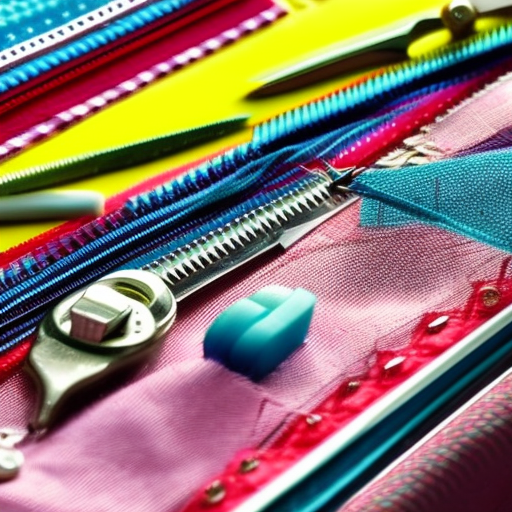
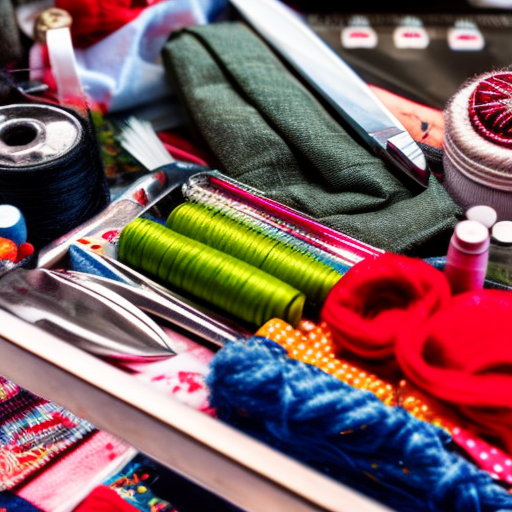
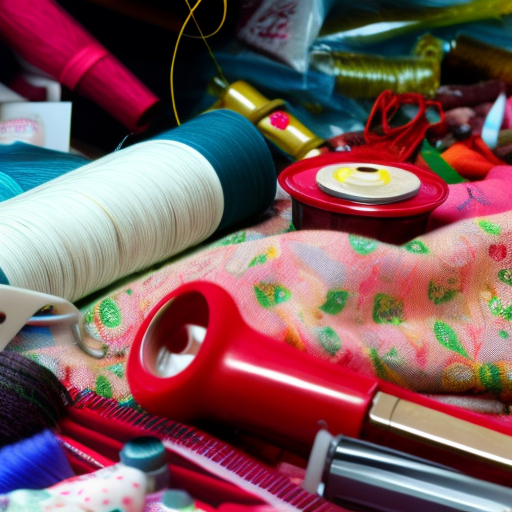
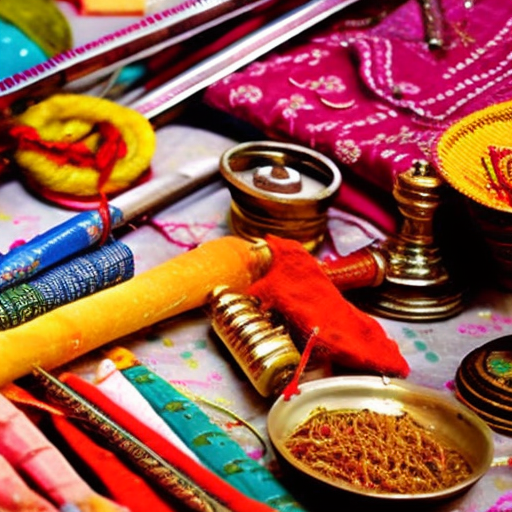
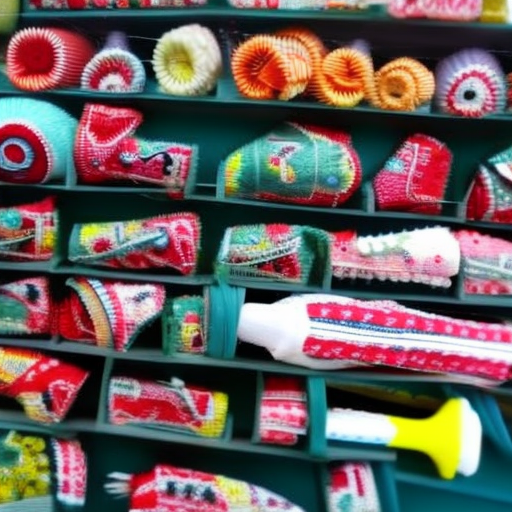
Nothing like adding the perfect zipper to finish off a project!
Lydia Adams: I love the convenience of being able to buy the zippers I need without having to make them from scratch.
I totally agree! Zippers are a fantastic way to quickly and easily finish off any sewing project – whether it’s a dress, a bag, or a cushion cover! Its amazing how a small item like a zipper can make such a difference.